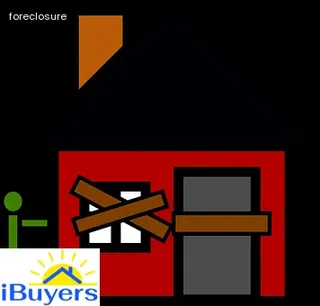In Mississippi, homeowners are subject to foreclosure laws and procedures that dictate the process by which a lender can reclaim a property if a mortgage is not paid in full. To begin the foreclosure process, a Notice of Default is sent to the homeowner that outlines their mortgage delinquency.
This notice will give the homeowner an opportunity to cure their default before any further steps are taken. If the homeowner does not take action or pay the delinquent amount, then the lender can proceed with filing a Lis Pendens with the local Circuit Court Clerk's office.
The Lis Pendens makes it known that there is an active lawsuit concerning ownership of the property and also serves as a public warning to anyone who wishes to purchase or acquire any interest in said property. Once this document has been filed, the foreclosure process moves forward with an auction taking place within 30 days where potential buyers can bid on the property in order to take ownership.
If no bids are received at auction, then it is likely that ownership will revert back to the lender who can either keep possession of it or attempt to sell it through other methods such as a realtor listing. Mississippi homeowners should be familiar with these foreclosure laws and procedures so they can make informed decisions when dealing with their mortgage obligations.

Understanding the foreclosure process in Mississippi is an important step for homeowners. Preforeclosure options are available to those facing foreclosure in order to avoid a complete loss of their home.
These options include loan modification, repayment plans, forbearance, and deed-in-lieu of foreclosure. Loan modification can mean adjusting payments, interest rate, loan term or principal balance in order to make the mortgage more affordable for the homeowner.
Repayment plans allow the homeowner to pay back what they owe over a period of time instead of all at once. Forbearance gives the homeowner a period of time during which they can pay off the owed amount without penalty or interest charges.
Finally, deed-in-lieu of foreclosure involves voluntarily transferring ownership of the property back to the lender in exchange for cancellation of debt; this option is only available when other options have been exhausted and no other solutions are possible. Mississippi homeowners should be aware that there are preforeclosure options that may help them save their home from being foreclosed on by understanding these laws and procedures before attempting any solution.
In Mississippi, there are two main types of foreclosure processes - nonjudicial and judicial. Nonjudicial foreclosures allow the lender to repossess the property without going through the court system, while judicial foreclosure requires a lawsuit in order to take possession of the home.
Nonjudicial foreclosures are typically faster and less expensive for lenders because they do not have to go through the legal process. In Mississippi, most mortgages require that lenders pursue a nonjudicial foreclosure if it is possible.
If a homeowner fails to make their mortgage payments, the lender can file a Notice of Default with the county clerk's office and serve notice on the homeowner. The homeowner then has 30 days to respond before an auction of the property is held.
On the other hand, judicial foreclosures involve filing a civil lawsuit in court against the borrower in order for a judge to decide if foreclosure proceedings should begin. The legal process can take up to several months or longer depending on how quickly both sides can agree on terms or if there are any issues that need to be resolved in court.

When facing foreclosure, homeowners in Mississippi have rights that should be carefully considered. Homeowners have the right to receive notice of the impending foreclosure before it is filed and can request a meeting with the lender to discuss options for avoiding foreclosure.
Homeowners also have the right to dispute any errors in their loan documents or in the notices sent by the lender. In addition, homeowners can request a mediation hearing where they and the lender may come to an agreement on repayment terms that are mutually beneficial.
Furthermore, borrowers are legally entitled to receive a written statement from their lender detailing each payment made, including payments applied to interest and principal balance, after the foreclosure process has been initiated. Lastly, borrowers can choose whether or not they wish to vacate their home during the foreclosure process; if they remain in their home after receiving a notice of foreclosure, they may be legally responsible for paying rent up until the date of eviction and may also be eligible for relocation assistance.
It is possible for Mississippi homeowners to avoid foreclosure by taking certain steps. One of the most important steps is understanding state foreclosure laws, as they vary from state to state.
Homeowners can find detailed information about the Mississippi foreclosure process on the website of the Mississippi State Department of Banking and Consumer Finance, which includes information about relevant regulations, notices, and deadlines. Understanding these laws helps homeowners know their rights and make informed decisions about their situation.
In addition to learning about foreclosure law, homeowners should consider options for avoiding a foreclosure such as developing a repayment plan with the lender or seeking assistance from a HUD-approved housing counselor. It is also important for troubled borrowers to stay in contact with their lenders throughout the process to discuss potential solutions that may help avoid a foreclosure.
Taking proactive steps such as these will increase the chances of avoiding a foreclosure in Mississippi while also taking into consideration any available legal protections under state law.

Mississippi foreclosure laws allow lenders to pursue deficiency judgments against homeowners in default of their mortgage payments. This means that if the foreclosure sale does not cover the entire amount of debt owed, the lender can take legal action to collect the remaining balance from the borrower.
To do this, a lender must prove that they have a valid claim for deficiency judgment and notify the borrower before taking any action. The state also requires lenders to provide borrowers with certain notices throughout the process.
Mississippi courts will review each case on its own merits, taking into consideration factors such as the fair market value of the property at the time of sale, any voluntary payments made by the borrower after defaulting on their loan, and other equitable considerations. Deficiency judgments are not automatic in Mississippi, but they remain a possible option for banks and other lenders when trying to recover funds from borrowers who have gone into foreclosure.
Mississippi residents who are facing foreclosure due to a natural disaster have rights and protections under the law. Homeowners in the state of Mississippi can be eligible for certain forms of relief if they can prove that a natural disaster has caused financial hardship.
This includes areas declared as a federal disaster zone or when individuals are affected by a major storm, flood, earthquake, tornado, or other natural event. There are also specific local laws that provide protection against foreclosures related to natural disasters.
Mississippi foreclosure laws offer protection such as forbearance of payments, loan modification programs, and waivers of late payment and penalty fees for homeowners who have been impacted by an event beyond their control. Additionally, some lenders may even be willing to accept a short sale of the property in order to avoid foreclosure proceedings.
It is important for Mississippi homeowners to understand their rights when it comes to foreclosure actions related to natural disasters, so they can ensure they receive the full benefits available under the law.

When faced with a foreclosure in Mississippi, it is important to seek professional advice from a qualified attorney or real estate expert. Knowing the Mississippi foreclosure laws and understanding the foreclosure procedures can be complicated and stressful, so having someone with expertise on your side is essential.
A professional can provide you with legal counsel regarding your rights as a homeowner, helping you to make informed decisions that could potentially save your home. Furthermore, they can help guide you through the foreclosure process, advocating on your behalf and ensuring that all of the forms are completed correctly.
Professional advice can help you determine the best course of action for your situation and provide peace of mind throughout the proceedings.
Mississippi is home to a variety of mortgage loans and understanding the laws and regulations associated with them can be difficult. However, it's important for homeowners in Mississippi to be aware of their rights when it comes to foreclosure proceedings.
Understanding the various loan types available, such as FHA, VA, USDA, and conventional loans can help homeowners make educated decisions about their financial future. Knowing the difference between pre-foreclosure activities and actual foreclosure notices can also provide valuable information that could help homeowners avoid or mitigate financial hardship due to foreclosure.
Additionally, understanding Mississippi foreclosure laws and procedures can help homeowners avoid foreclosure altogether by providing them with the knowledge needed to keep up with payments. Finally, staying informed about resources available for assistance with loan modifications or other payment arrangements may further protect against potential foreclosure down the line.

Missing a mortgage payment in Mississippi can have significant consequences for homeowners. It is important to understand the foreclosure laws and procedures of the state before missing a payment, as falling behind on payments can put homeowners at risk of losing their homes.
The first step in Mississippi's foreclosure process is typically a notice of default, which is sent to the homeowner if payments are missed for a certain period of time. This document will explain how much money must be paid to bring the loan current, and it will also include information about the sale date and redemption period.
After this notice is sent, if no action is taken by the homeowner, then a foreclosure sale may be scheduled. At this point, homeowners may face serious financial penalties and could lose their homes if they are unable to pay back their loans or arrange an alternative solution with their lenders.
Therefore, it is important for homeowners to know their rights when it comes to foreclosures in Mississippi and to be aware of all available options so they can make informed decisions that best suit their needs.
A Breach Letter is a document that is sent to homeowners who have failed to make their mortgage payments. The letter serves as a formal notice that the homeowner has breached the terms of their loan repayment agreement and is in default.
It outlines the amount of money owed, any late fees or other penalties, and lists any actions taken by the lender in an attempt to collect payment. Additionally, it typically warns of potential legal action if payment is not received within a certain timeframe.
This letter puts the homeowner on notice that foreclosure proceedings may be initiated if they are unable to pay what they owe or come to an alternate arrangement with their lender.

In Mississippi, the foreclosure process begins when a homeowner defaults on their mortgage payments. The lender files a Complaint of Foreclosure with the court and serves it to the homeowner.
The homeowner then has 15 days to file an answer with the court. Once the answer is filed, a hearing date is set by the court, typically within 30-45 days from when the Complaint was filed.
If no answer is filed, or if after hearing arguments from both parties the court finds that foreclosure should proceed, then a Judgment of Foreclosure is issued. This Judgment will provide for sale of the property and appointment of a Commissioner to oversee it.
Notice of Sale must be advertised in two newspapers published in the county at least twenty-one days prior to sale. On sale day, the highest bidder at auction becomes owner of the property unless they are outbid by another party or by the lender who holds title to it.
If no bidders come forward at auction, then title reverts back to lender who can then take possession without further action from Court.
Mississippi homeowners facing foreclosure are advised to research and understand the state's foreclosure laws and procedures. Mississippi, like all other states, has its own unique set of laws and regulations that must be followed in the event of a foreclosure.
Foreclosure is a legal process in which a lender attempts to recover the balance of a loan from a borrower who has failed to make payments. In Mississippi, foreclosures are handled through either judicial or nonjudicial processes.
Judicial foreclosures involve court proceedings, while nonjudicial foreclosures do not require court action. However, both types will result in the sale of the property and the borrower losing their home if they cannot repay their loan.
It is important for homeowners to understand how these different processes work so they can decide what approach best suits their situation. Additionally, Mississippi offers certain protections for borrowers in order to allow them more time to potentially resolve their debt or avoid foreclosure altogether.
It is critical for homeowners in this state to understand these rights so they can take advantage of them if necessary.

Mississippi homeowners have the right to reinstate their property during nonjudicial foreclosures. This means that, if a homeowner is facing foreclosure and is unable to continue making payments, they can reinstate the mortgage loan by paying off the entire past due amount in one lump sum.
If they are able to do this before the sale date of the home, then they may be able to keep their property and avoid going through foreclosure proceedings. It is important for homeowners to understand that Mississippi law allows them to reinstate the loan only if they can pay the full amount due before the sale date.
Furthermore, it is important for homeowners to note that reinstatement of a loan does not guarantee that foreclosure proceedings will be avoided; it simply gives them an option should they be unable to make payments on time.
The length of a Mississippi foreclosure process can vary depending on the particular case, but there are general steps that need to be taken and timelines that must be followed. The homeowner will receive a notice of intent to foreclose, which typically is sent at least thirty days before the legal foreclosure process begins.
From there, the lender will file a complaint with the court and notify the homeowner; this generally takes around ninety days. After this point, the homeowner has twenty days to respond or else they may face an automatic default judgement.
The hearing itself usually takes place in approximately sixty days. If a sale date has been set by the court, then it will take place within thirty days of the hearing date.
It’s important for homeowners to understand these timelines so they can take action as soon as possible if they wish to avert foreclosure.

When a homeowner in Mississippi finds themselves facing foreclosure due to missed mortgage payments, it is important to understand the laws and procedures for dealing with preforeclosure notices. Analyzing these notices can help homeowners understand their rights and the steps they need to take in order to avoid foreclosure.
In Mississippi, preforeclosure notices are sent from the lender or creditor that holds the mortgage. These notices provide an overview of how much is owed and what will happen if payments are not made.
If payments are not received within a certain period of time, then the property may be sold at a public auction. It is also possible that the creditor may offer loan modifications as an option for avoiding foreclosure.
Knowing which options are available can help homeowners make more informed decisions about their financial future.
Homeowners in Mississippi have certain rights when facing foreclosure, but it is important to understand how those rights compare to federal regulations. Mississippi state law dictates that the lender must provide notice of the debt before initiating a foreclosure process.
This state also allows for a redemption period during which the homeowner may repay the debt and keep their home. Additionally, homeowners have the right to dispute any inaccuracies in the mortgage note or loan documents and can challenge foreclosures on procedural grounds.
Federal law offers protections such as requiring lenders to provide information about alternative payment plans and forbidding creditors from using predatory tactics to collect debts. In cases where lenders violate these laws, homeowners may be able to successfully dispute a foreclosure action or receive compensation for damages.
Ultimately, comparing homeowner rights between Mississippi state laws and federal regulations can help lead homeowners towards an effective resolution if they are facing foreclosure proceedings.

Mississippi homeowners who are facing foreclosure have an array of legal avenues to explore in order to avoid the process, including loan modifications. A loan modification is an agreement between the lender and borrower that alters the terms of the original loan.
This can include a change in interest rate, repayment period, or principal balance. Depending on a homeowner’s financial situation, they may qualify for a forbearance plan, which allows them to temporarily stop making payments while they get back on their feet financially, or they may be eligible for a loan modification or refinancing.
Mississippi homeowners should speak with their lender and research different options available to them before deciding which avenue is best suited for their needs. Additionally, consulting with an attorney who specializes in foreclosure law can provide valuable guidance as well.
Mississippi homeowners facing foreclosure may have alternatives to a traditional foreclosure process. One such option is a short sale, in which the homeowner sells their home for less than the outstanding mortgage balance and the lender agrees to accept the proceeds of the sale to satisfy the debt.
Another option is deed in lieu of foreclosure, where the homeowner voluntarily transfers ownership of their home back to the lender in exchange for being released from the remaining loan balance. In some cases, lenders may offer forbearance agreements that allow homeowners to miss several mortgage payments without penalty and resume payments at a later date.
Loan modification is also an alternative, where lenders agree to change certain terms of an existing loan, such as reducing monthly payments or extending repayment periods. Homeowners should consider all potential options before entering into a traditional foreclosure process.
Yes, you can stop a foreclosure in Mississippi by understanding the state's laws and procedures. Depending on the circumstances of your case, there are different strategies that you can take to stop the process from moving forward.
One way may be to contact your lender to discuss options for loan modification or loan repayment plans. You should also be aware of special programs such as the Mississippi Homeowner Assistance Program (HAP), which provides financial assistance for qualified homeowners facing foreclosure.
Additionally, understand that a bankruptcy filing may halt foreclosure proceedings and give you some breathing room to work out an alternate solution with your lender. Finally, consult a qualified attorney who is knowledgeable about Mississippi foreclosure laws so you can make an informed decision on how best to proceed.
No matter what route you take, it is important to remember that taking action early is key to avoiding foreclosure in Mississippi.

In Mississippi, a homeowner will enter foreclosure if they are more than two months behind on their mortgage payments. The foreclosure process begins once the homeowner has missed two monthly payments and the bank has filed a lis pendens – a public legal notice that informs the homeowner that legal action is being taken against them.
The next step in the foreclosure process is for the lender to file a complaint with the court, which can take anywhere from 30-90 days depending on court availability. Once the complaint is filed, homeowners have an additional 20 days to respond in writing to contest the foreclosure proceedings.
If they fail to do so, they risk having their case heard in court without their presence or input. Homeowners who are struggling with payments may be able to work out an arrangement with their lender before entering into foreclosure proceedings.
They should contact their lenders immediately upon missing any payments and inquire about potential solutions such as loan modifications or repayment plans. Understanding Mississippi Foreclosure Laws and Procedures for Homeowners is essential for anyone facing this difficult situation.
Mississippi is often cited as having the longest foreclosure process in the United States. Homeowners facing foreclosure in Mississippi should be aware of the lengthy timeline and state-specific procedures involved.
Understanding Mississippi foreclosure laws and procedures can help homeowners protect their rights and limit their financial losses throughout this difficult process. The typical Mississippi foreclosure takes approximately eight months to complete, beginning with a notice of intent to foreclose and ending with the sale of the homeowner's property.
During this time, homeowners must stay informed of their rights under Mississippi law and court proceedings to ensure they are protected. Additionally, they should make use of resources such as housing counseling services or legal advice to understand what options are available throughout the process.
With an understanding of Mississippi foreclosure laws, homeowners can take steps towards protecting their rights while trying to avoid or shorten the long foreclosure timeline in Mississippi.
The average foreclosure process in the US takes anywhere from three to nine months, depending on the state. In Mississippi, foreclosures must adhere to state laws and procedures.
According to Mississippi foreclosure law, a homeowner may expect their foreclosure to last approximately four months before they are required to vacate the property. This includes pre-foreclosure notices and court proceedings that require legal assistance.
During this time, homeowners should consider options such as loan modifications or payment plans with their lender that can help keep them in their home. Additionally, it is important for homeowners to fully understand their rights throughout the foreclosure process and take necessary steps to protect those rights during the proceedings.